Q&A with Author and Hip-Hop Theorist Dalton Higgins
When did you first discover the power of words? Did you write as a child?
I was raised in a very Jamaican household, so was swept up by the power of Miss Lou and nation language. I was always the best speller in public school, partly due to the way literacy is treated in Jamaica; it’s a more rigid teaching system informed by the British colonizers, and that’s how my mother taught me—the way she was taught.
I also grew up in a household, and lived in an area in Toronto where many of my peers took great interest in human rights, or more specifically civil rights, so I would listen to and enjoy reading the speeches of great orators like Malcolm X and Marcus Garvey, all the way to Angela Davis and Shirley Chisholm in my early high school years. Certainly growing up in the Black church, my appreciation of words began with my taking in the weekly fire and brimstone put forth by my pastors in the pews.
By high school the wordsmithing I enjoyed most carried a soundtrack, so we’re talking about me listening to oodles and oodles of hip hop, Rakim and KRS One. And the artists they sampled were even greater freedom writers/riders, Fela Kuti to Gil Scott Heron. That’s how I became more attuned to the hyper-artistic use of rhyming couplets, all kinds of literary devices, iambic pentameters, metaphors and similes for days. I make the case that rappers are the new literati, they are the nu streetcorner seers. Modern day griots.
You are recognized as one of Canada’s foremost experts on hip hop culture. What initially prompted you to write Hip Hop World, the most current book on the subject?
I was putzing out in Germany in 2004, I was there for a music conference. So I’m checking into this hotel, and this young chap working at the front desk is staring at me, perhaps thinking that I was not from Essen, and rightly so. In some parts of Europe, if you’re Black, you tend to run into all these philistines who believe you can’t be anything other than a hip hop westerner or somehow related to Bob Marley. Like a caricature. In these more homogenous environments, ignorance reigns supreme because sometimes the locals don’t know any better, or don’t care to come out of their caves.
Nevertheless, the guy can’t speak much English, and my German is lousy to non-existent, so he starts doing a human beat box routine and that’s how he chooses to bridge this great racial and cultural divide. By using one of the tools or elements of hip hop. A major a-ha moment for me, as a guy who’s been documenting hip hop cultures effects on the wider popular culture. As I write in Hip Hop World, “it’s a hip hop world, and you’re just living in it.”
What are some memorable Black-authored books that have a special place in your shelves?
For must reads you have to go to The Mis-Education of the Negro by Carter G. Woodson, Franz Fanon’s The Wretched of the Earth, W.E.B Dubois’s The Souls of Black Folk. All life altering pieces of prose, through different lenses.
Is it possible to ever truly be a novel (in the sense of cutting-edge) writer?
As an afro futurist and hip hoppy conceptual artist, I am very big into “sampling,” offering up ideas on how modern day creators stitch together new and old source materials and form these newer digitized sonic quilts, so my idea of what is cutting-edge is oftentimes different than that of the status quo in Canada. I am reading excerpts of Marcus Boon’s In Praise of Copying, which argues that copying is an essential part of being human. A crucial argument to take on, given the grey areas concerning intellectual property.
Can you tell us about your fourth book, Fatherhood 4.0: iDad Application Across Cultures?
Unlocking the mysteries of fatherhood is what drives me more now than ever. For this book I tracked down a motley crew of multi-culti personalities, public figures, intellectuals, entertainers, athletes, and activists to share their stories, memories, insights, and revelations about fatherhood. What I got back ranged from the comic to the tragic. It was a book I had to write, and Fatherhood 4.0 is a movement I had to invent. I’ve become obsessed with tracking down where cross-cultural fatherhood rituals intersect with the worlds of technology, hip hop, and hipster culture. It’s a way for me to acknowledge and bring light to a cool diverse dads movement happening in Canada.
At what moment did you realize that you wanted/needed to be an author? Was there a moment, or was it more of an unfolding series of experiences?
Writing chose me. Realistically. I didn’t grow up with any desire to write. There is no history in the Higgins family of scribing, it’s not in my lineage. This all happens organically. Hard to choose to sit in near isolation for years on end, banging away at a keyboard ad nauseum, to hit a small fraction of people relative to the audience of The Strokes or Cee-Lo Green. When you read as much as I do, writing comes easier. I have all of these styles in my head. You should read my e-mail replies to my friends. Reams of digital copy.
What author in history would you have loved to have a coffee (or tea) and chat with, and why?
Iceberg Slim. As a reformed /ex-pim, his take on power dynamics in the criminal underworld stands the test of time…you are either a hustler, or you’re being hustled.
Are you currently at work on any new projects? Where can we go to hear or find your work?
Babylonia: The Death of Common Sense is my next book project. If you google me bi-monthly you will be treated to an audio-visual assault on the senses.
Dalton Higgins is a widely read blogger utilizing a wide array of sobriquet’s including Daltpak Chopra and Usain Dalt. Higgins is considered one of Canada’s foremost experts on popular culture and his other books include Hip Hop World, Hip Hop and Much Master T: One VJ’s Journey. Higgins co-directed and produced More Than a Haircut, the critically acclaimed documentary about Black fathers and barbershop culture.



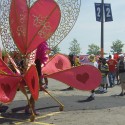
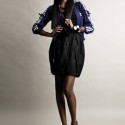
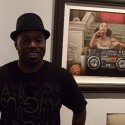
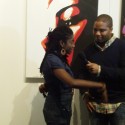
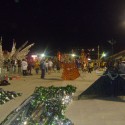
Leave your response!